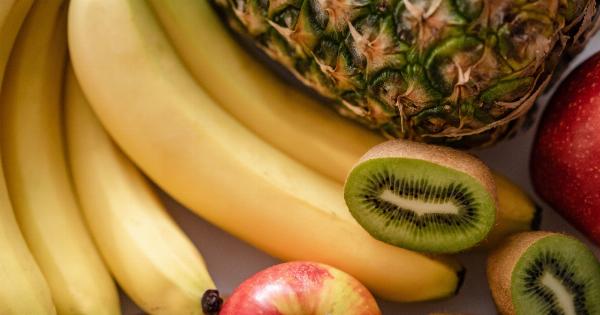Intermittent fasting is a dietary pattern that involves alternating periods of eating and fasting. This dietary regimen has gained popularity in recent years as it has been shown to have a range of health benefits.
One area where intermittent fasting is thought to have an impact is on the composition of the intestinal microbiome. This article delves deeper into the relationship between intermittent fasting and the composition of the intestinal microbiome.
What is Intermittent Fasting?
Intermittent fasting is not a specific diet but rather an eating pattern. It involves alternating between periods of eating and fasting. There are different approaches to intermittent fasting, including:.
- The 16/8 method: This method involves fasting for 16 hours and then allowing an 8-hour eating window.
- The 5:2 diet: This method involves consuming a normal diet for five days and then limiting calorie intake to 500-600 calories per day for two days.
- The eat-stop-eat method: This method involves fasting for 24 hours once or twice a week.
The Intestinal Microbiome
The intestinal microbiome is a complex ecosystem of microorganisms that inhabit the gastrointestinal tract.
These microorganisms play a vital role in human health by helping to digest food, synthesizing vitamins, and providing a crucial defense against pathogens. The composition of the intestinal microbiome can be influenced by a wide range of factors, including diet, physical activity, medication use, and stress.
Alterations in the composition of the intestinal microbiome have been linked to a range of health conditions, including obesity, type 2 diabetes, inflammatory bowel disease, and cardiovascular disease.
Intermittent Fasting and the Intestinal Microbiome
Studies have shown that intermittent fasting can have a significant impact on the composition of the intestinal microbiome.
One study published in the journal Science Translational Medicine found that intermittent fasting altered the composition of the intestinal microbiome in mice. The researchers found that intermittent fasting led to an increase in the abundance of Lactobacillus and Akkermansia muciniphila, two bacterial species that have been linked to improved metabolic health.
Another study published in the journal Cell Research found that intermittent fasting altered the composition of the intestinal microbiome in humans.
The researchers found that intermittent fasting led to an increase in the abundance of the bacterial species Firmicutes, which are associated with improved metabolic health and a reduction in the abundance of the bacterial species Bacteroidetes, which are associated with obesity and metabolic disease.
Intermittent fasting has also been shown to increase bacterial diversity in the intestinal microbiome.
Bacterial diversity is important for maintaining a healthy microbiome as it helps to ensure that the ecosystem is resilient to disturbances and able to perform its functions effectively.
The Mechanisms Behind The Changes
The mechanisms behind the changes in the composition of the intestinal microbiome that occur with intermittent fasting are not yet fully understood.
One proposed mechanism is that intermittent fasting may increase the production of short-chain fatty acids (SCFAs). SCFAs are produced by the fermentation of dietary fiber by bacteria in the intestinal microbiome. SCFAs are important for gut health as they provide energy to the cells lining the intestine and help to regulate the immune system.
Studies have shown that intermittent fasting can increase the production of SCFAs in the intestinal microbiome.
Another proposed mechanism is that intermittent fasting may alter the expression of genes involved in the regulation of the intestinal microbiome.
Studies have shown that intermittent fasting can increase the expression of genes involved in autophagy, a cellular process that helps to remove damaged cells and promote cellular repair. Autophagy has been shown to play an important role in the regulation of the intestinal microbiome.
Conclusion
Intermittent fasting is a dietary pattern that has been shown to have a range of health benefits.
Studies have shown that intermittent fasting can have a significant impact on the composition of the intestinal microbiome, leading to an increase in bacterial diversity and improvements in metabolic health. The mechanisms behind these changes are not yet fully understood, but may involve the production of short-chain fatty acids and alterations in the expression of genes involved in the regulation of the intestinal microbiome.
Further research is needed to better understand the relationship between intermittent fasting and the intestinal microbiome.




























